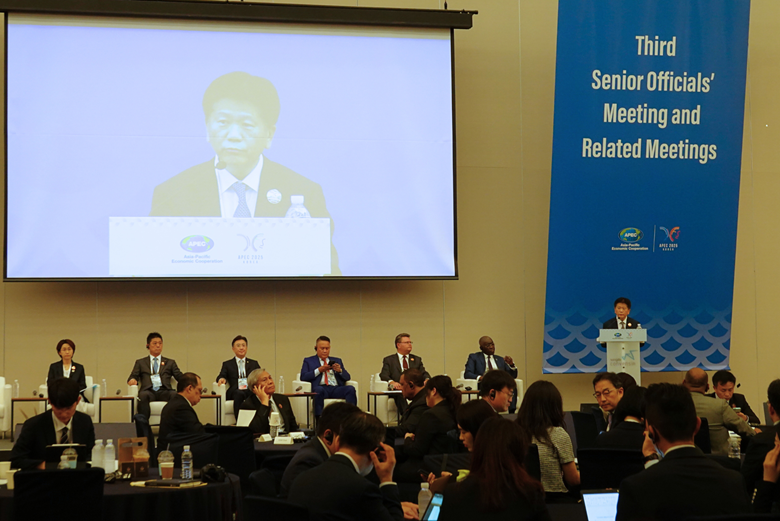
At the opening of the first-ever APEC High-Level Dialogue on Anti-Corruption Cooperation (AHDAC), Vice-Chairperson Myung Soon Lee of the Anti-Corruption and Civil Rights Commission (ACRC) of the Republic of Korea called on member economies to treat transparency and accountability as fundamental pillars of economic resilience and sustainable growth.
"Today, we face an unprecedented situation marked by rising global economic uncertainty, escalating geopolitical tensions and an accelerating pace of technological transformation," Lee said in his opening remarks. "Against this backdrop, transparency, fairness and accountability are no longer merely optional values; they have become prerequisites for sustainable growth and international cooperation."
"Corruption undermines the investment environment, erodes public trust and weakens democratic governance. Moreover, corruption poses a serious obstacle to building the open and innovative economic community that the Asia-Pacific region aspires to build."
"The anti-corruption issues discussed at today's high-level dialogue are not challenges confined to anti-corruption agencies alone," he said. "They represent shared responsibilities of all stakeholders, including the private sector, to build a trust-based market order, ensure a fair competitive environment and foster a sustainable economic system."
He outlined three key priorities for advancing anti-corruption cooperation in APEC: combating cross-border corruption, enhancing private sector integrity and expanding education and training.
"Corruption is becoming increasingly covert, transcending borders through digital assets, international procurement and complex financial systems," Lee noted. "It is imperative that we institutionalize international cooperation in investigations, asset recovery and law enforcement mechanisms."
On private sector collaboration, Lee called for stronger corporate integrity frameworks and protection for whistleblowers. "Corruption cannot be eradicated solely through government efforts; it requires active engagement and collaboration from the private sector."
He also underscored the importance of education in fostering a long-term culture of integrity, citing Korea's tailored programs for youth, public officials and businesses. "These efforts lay a solid foundation for reducing corruption throughout society and fostering a culture of integrity."
Lee urged participants to move from vision to implementation. "Today's high-level dialogue must not be merely declaratory in nature, but must serve as a platform for identifying actionable tasks. We are living in an era where transparency is a key to competitiveness and integrity drives sustainable growth."
Concluding his remarks, he reaffirmed Korea's commitment to regional cooperation. "The ACRC and the Government of the Republic of Korea stand fully prepared to actively contribute to such international anti-corruption solidarity. Through this dialogue, I hope that APEC will further advance as a regional platform that presents best practices, including those in the area of anti-corruption, to the global community."






